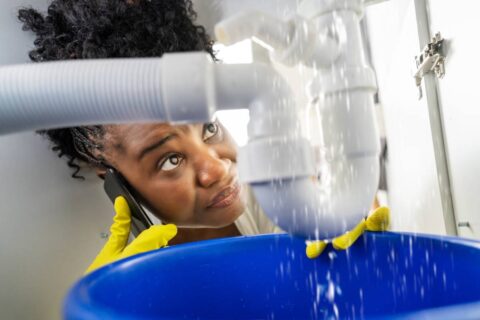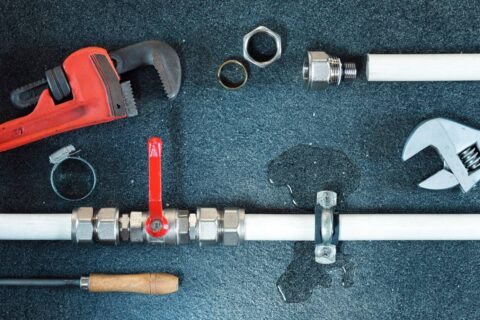How to Handle Plumbing Emergencies
Plumbing emergencies often happen when you least expect them. This can be overwhelming, to say the least. Preparing in advance is necessary, as anyone who owns a home knows that plumbing issues do occur. This is especially true if you don’t take preventative measures to reduce your risk. If you find yourself in a plumbing emergency, it’s important to stay calm and act fast. Below, you will find helpful tips on how to handle plumbing emergencies.
How to Handle Plumbing Emergencies
Plumbing emergencies can cause serious damage to your home. This can result in a lot of time and money spent addressing the issue after the fact. From burst pipes to clogged drains, you may feel unprepared about how to handle a plumbing emergency. Having a trusted plumbing contractor’s information ready is key. They can help you navigate the process in the event of a plumbing emergency.
What Qualifies As a Plumbing Emergency?
Understanding what kind of plumbing emergency you are dealing with is the first step. This will help you determine what to do and how to prevent further damage. Below are some of the common types of plumbing emergencies.
Clogged Toilet:
A clogged toilet can turn into an overflowing toilet really fast. This can be unsanitary and unsightly. Because of the damage the water can do to your home and piping, a clogged toilet that is overflowing is definitely a plumbing emergency.
Burst Pipes:
A burst pipe is a severe plumbing emergency. The water damage can be severe and cause further issues in your home. Burst pipes are often caused by unaddressed wear and tear, excess pressure, or even drastic temperature drops. The issue requires immediate attention from an emergency plumber in Highland.
Water Leaks:
Leaks from a water faucet, water heater, or pipe can be a plumbing emergency. While it may not seem as severe as a burst pipe, a water leak can cause serious damage. This includes mold growth, structural damage, and an increase in your water bill. The issue can also get much worse and lead to more serious plumbing issues. Address the issue right away to prevent further damage.
Clogged Sewer Lines:
A clogged sewer line is a serious plumbing emergency as it is a health hazard. On top of the sanitation issues, a clogged sewer line can impact other fixtures. This can leave your home smelling terrible as well. Contact a skilled plumber to address the issue right away.
Steps to Take in a Plumbing Emergency
Understanding how to address a plumbing issue is key to reducing the amount of damage. Take the following steps if you experience a plumbing emergency.
- Shut The Water Off: Turn off the main water valve to reduce the amount of water damage. This is a critical step as it can save you a lot of money and time when it comes to addressing the damage.
- Contact A Plumber: Call an emergency plumber right away. They can ask the necessary questions and provide you with their recommendations. If necessary, they can come to your home to address the issue.
- Do What You Can: There are some things you can do in the meantime until the plumber arrives. Grab your buckets and towels and reduce the impact of the water on your home. If it is sewage, be extremely careful due to the serious health hazards associated with waste.
- Consider Preventative Measures: Once the issue has been fully addressed, consider how you can prevent the issue from happening again. Having a plumber regularly assess your pipes can reduce the risk of damage in the future. Consult with a skilled plumber in your area about any other steps you can take.


